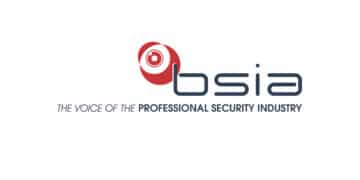It cannot be understated how important healthcare facility safety is, but as Maxxess Systems explain, using access control can make them safer than ever
In healthcare settings, security is not just a convenience but a necessity. Facilities face unique challenges due to the nature of their operations: staff working irregular hours, numerous entry points, and the critical need to safeguard both patients and sensitive information.
Given that up to 72% of healthcare workers express concerns about workplace violence and hospitals report losing 10%-20% of key assets annually to theft or misplacement, robust access control systems are paramount.
Understanding Access Control in Hospitals
Access control systems are sophisticated networks of technologies and policies designed to restrict entry to specific areas within healthcare facilities to authorised personnel only.
This capability is vital as it allows hospital staff to manage the safe flow of people across multiple entry points while ensuring the protection of property and assets.
Effective Access Control Solutions by Maxxess Systems
Maxxess Systems state that their eFusion software offers advanced, compliant, cloud-native access control solutions tailored for healthcare settings:
- Instant Permissions Management: Administer or revoke access rights in real-time.
- Touchless Mobile Credentials: Enable convenient and secure access through smartphones.
- Easy Integration: Seamlessly works alongside existing security infrastructure to enhance overall safety.
Types of Access Control for Hospitals
Hospitals benefit from a variety of access control systems, each serving distinct security functions:
- Perimeter Solutions: Fences, gates, and other physical barriers help manage traffic flow, directing it towards monitored points to ensure security.
- Electronic Access Control: More sophisticated than basic perimeter solutions, these systems use electronic locks and credentials to secure entry points. This allows for real-time monitoring and audit trails essential for maintaining secure environments.
Hospital Access Control Policies
Effective access control policies are crucial for maximising the benefits of physical and electronic security systems. Implementing a zero-trust approach ensures that all hospital personnel must verify their identity before accessing sensitive areas, helping to maintain stringent security standards and comprehensive audit trails.
Visitor Management Technologies
Visitor management is a critical component of hospital security. Technologies that track visitor access help ensure that guests only enter appropriate areas and do not access restricted sections, improving overall security and operational efficiency.
Crucial Role of Access Control Systems in Healthcare
Access control systems in healthcare facilities serve several vital functions:
- Asset Protection: Secure valuable equipment and sensitive materials from theft or misuse.
- Enhanced Accessibility: Facilities must balance the need for public accessibility with the security of restricted areas, requiring sophisticated access control strategies.
- Protection of PHI: Healthcare facilities are mandated to protect Patient Health Information under regulations like HIPAA. Advanced access control systems ensure that only authorised personnel can access sensitive data.
Best Practices for Implementing Hospital Access Control
Implementing effective access control in a healthcare setting involves several strategic practices:
- Cloud-Based Management: Offers flexibility in security management, allowing administrators to modify permissions from anywhere and respond to security alerts in real-time.
- Role-Based Permissions: Tailors access rights according to the specific duties and responsibilities of staff members, enhancing both security and operational efficiency.
- Diverse Credential Options: Depending on the sensitivity of the area, different credential types can be used ranging from simple keypad entry to advanced biometric systems.
Integration of Smart Security Technologies
Integrating access control systems with other security measures like alarms, sensors, and CCTV enhances the overall security infrastructure, allowing for a coordinated response to incidents and streamlined management.
Conclusion
With the unique challenges faced by healthcare facilities, designing and implementing an effective access control system is crucial. By employing a thoughtful mix of technologies, policies, and best practices, healthcare administrators can ensure the safety and security of their patients, staff, and assets.
Maxxess Systems believe that their eFusion software provides a robust foundation for these efforts, supporting healthcare facilities in maintaining a secure and compliant environment.
To read more Maxxess news, click here.





